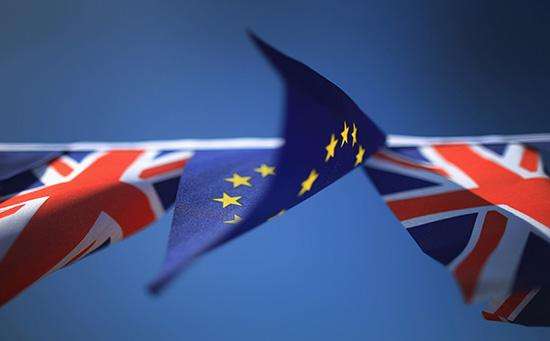The UK economy grew 0.3 per cent in the third quarter from the previous quarter, avoiding the feared contraction, the office for national statistics said. However, due to the political turmoil caused by "brexit" and the decline in real sectors such as manufacturing and business investment, the UK's economic outlook is not optimistic, and the country's monetary policy decisions are faced with more complicated conditions, and the number of people in the decision-making camp who choose to cut interest rates keeps increasing.
UK gross domestic product growth slowed to 1.0 per cent in the third quarter from 1.3 per cent in the second quarter, according to the office for statistics. That was the slowest year-on-year growth since the first quarter of 2010 and slightly below the 1.1 per cent growth forecast by economists in a Reuters poll. GDP grew 0.3 per cent in the third quarter from the previous quarter, below the 0.4 per cent forecast by the bank of England and some others. The UK economy shrank by 0.2 per cent in the three months to June. Since the brexit vote in 2016, the British economy has lost momentum, growing at an annual rate of more than 2% before the vote.
Business investment remained stable in the third quarter but fell 0.6 per cent year-on-year, the ons said. Manufacturing output fell more than expected, falling 0.4 per cent month-on-month and 1.8 per cent year-on-year. Data showed consumer spending and trade led the economy in the third quarter, offsetting flat business investment and shrinking inventories. But the UK economy grew by just 1 per cent compared with the same period last year, the slowest annual growth since 2010, the ons said.
With a month to go before an early general election, British chancellor of the exchequer javid praised the "robust" growth figures. The opposition Labour party has challenged this view.

Figures released by the department of international trade showed the UK had a trade deficit of nearly 38 billion pounds in 2018, up from 25.1 billion pounds in 2017 and the highest level since 2011. Britain's department of international trade says the country has run a trade deficit for nearly two decades. According to the data, the trade volume between the UK and the eu accounted for 49% of the UK's total trade in 2018. Germany, the Netherlands and France are the eu members that trade with the UK the most.
The impact of the "brexit" uncertainty on the UK's trade and economy is increasingly apparent. In its latest world economic outlook, published in October, the imf cut its forecast for UK growth this year to 1.2% from 1.3%. Economists say continuing political uncertainty and weak global growth could prompt the bank of England to cut interest rates next year even if prime minister Boris Johnson passes a brexit deal ahead of the eu exit deadline.
Last week, two boe policymakers voted for a rate cut, and if growth remains weak, others may follow. "The bank of England expects a rebound in investment if the U.K. parliament approves the brexit deal and removes the risk of a no-deal brexit, but we think that's a very optimistic view," CloseBrothers chief investment officer NancyCurtin told Reuters.




